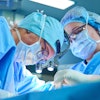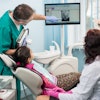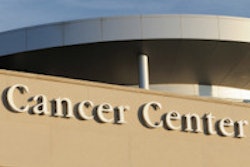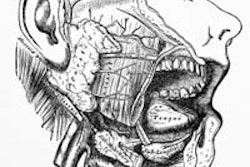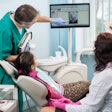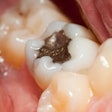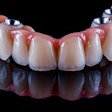The Henry Ford Hospital in Detroit has joined a U.S. clinical trial to study the effectiveness of a newer robotic cancer surgery in treating patients with advanced-stage oropharyngeal cancer.
The study, led by the nonprofit research organization NRG Oncology, will compare survival and disease progression in patients who receive radiation and chemotherapy following transoral robotic surgery (TORS) -- which uses Intuitive Surgical's da Vinci surgical system to access tumors through the mouth without an incision -- with those who are only treated with radiation and chemotherapy.
TORS was approved in 2010 by the U.S. Food and Drug Administration to remove malignant and benign tumors of the mouth, tongue, tonsils, and parts of the throat. With TORS, surgeons can access tumors through the mouth using the slender operating arms of the da Vinci, thus not requiring an open skin incision.
The study also will examine the safety and efficacy of TORS, as well as patient quality of life following treatment.
"Prior to TORS, patients would traditionally begin treatment with radiation therapy, or a combination of chemotherapy and radiation therapy, depending on the stage of their cancer," said the Henry Ford lead investigator Tamer Ghanem, MD, PhD, director of head and neck oncology and reconstructive surgery division in the department of otolaryngology--head and neck surgery, in a statement. "It's important for us to further study the effectiveness and safety of TORS, to provide our patients with the best treatment options for their head and neck cancer diagnoses."
Henry Ford Hospital is currently recruiting patients 18 and older for the clinical trial with early- or late-stage human papillomavirus (HPV)-negative oropharyngeal cancer to be treated with the TORS procedure. These patients must have been diagnosed with clinical cell carcinoma of the oropharynx, localized to the tonsil, glossopharyngeal sulcus, and tongue-base within six weeks of registration, and the patient's tumor must be HPV-negative.
For patients to participate, their primary tumor must be able to be removed through a transoral endoscopic head and neck surgery with anticipation of resection-free margins. Specifically, patients must be able to completely open their mouth and cannot have poor transoral exposure of the tumor itself or surrounding soft-tissue margins.
The study is sponsored by NRG Oncology and the National Cancer Institute.
